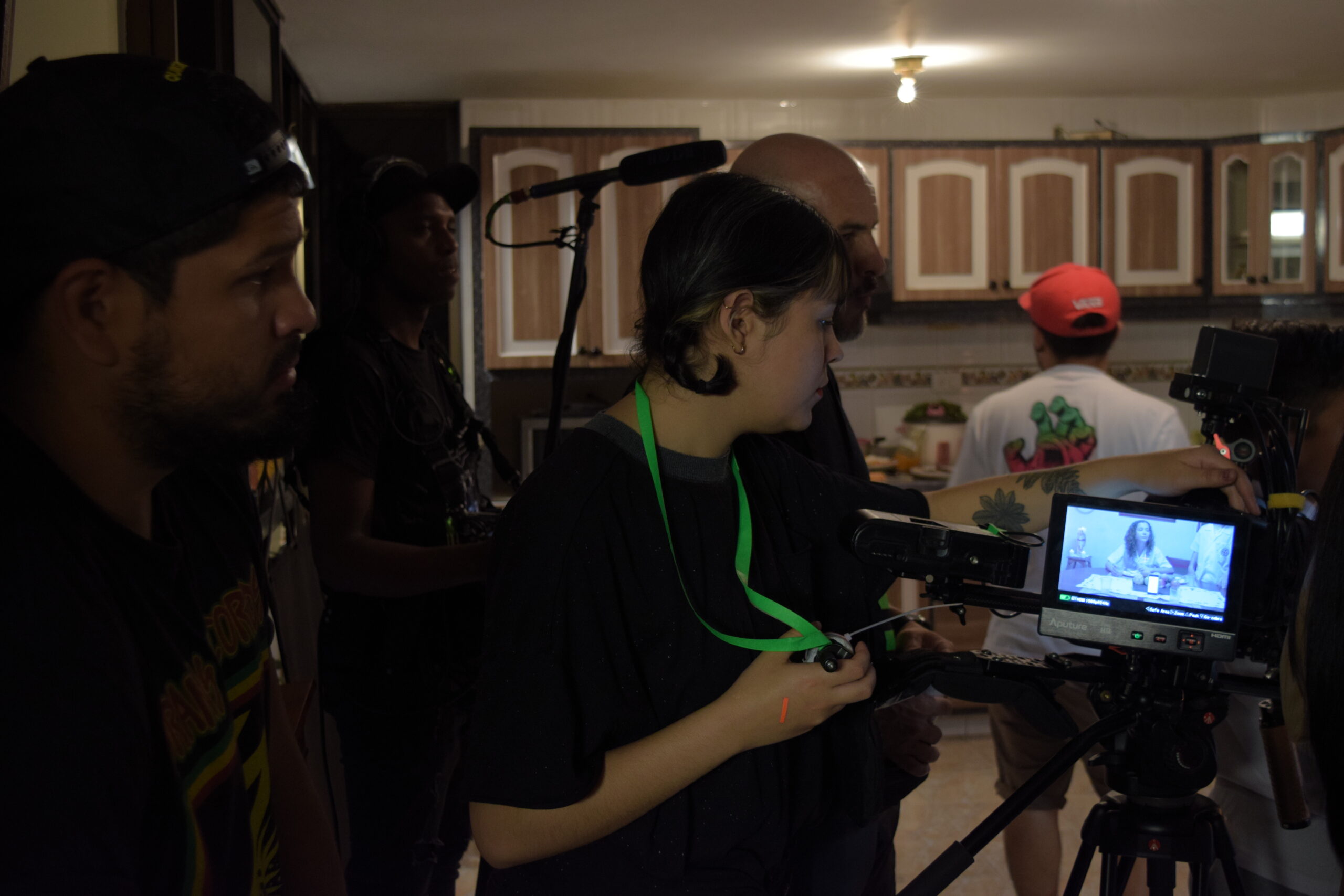With 'Mañanitas', Cauca's cinematographic voices open new ways to tell the story of the region
The short film directed by Santiago Chacón Narváez was the winner of the Regional Stories (Relatos Regionales) grant from the FDC and premiered at the Cartagena Film Festival in Spain. An exhibition tour across Colombia is planned throughout 2025.
Por Yeimi Díaz Mogollón. Original en www.mincultura.gov.co
Amidst a timid adolescent awakening, and through the story of Santiago, a 12-year-old boy innocently attracted to his older cousin's body, Mañanitas has become a symbol for the strengthening of Cauca cinema and adds to the significant short film production emerging in the region.
The short film, directed by Santiago Chacón Narváez, was a winner of the Film Development Fund (FDC) in the Regional Stories category, and its international premiere took place at the 53rd Cartagena Film Festival in Spain. Now, this work, driven by Makhino Audiovisual Production Company, is preparing for its distribution throughout Colombia.

Santiago Chacón Narváez, Director of 'Mañanitas'.
Juan Esteban Rengifo, a producer at Makhino, discusses the short film's development, its contribution to boosting cinematographic development in Cauca, and the opportunities opening up for new directors, producers, and filmmakers in the region, following this story based on an adolescence rarely reflected on the big screen.
How was the creation process of ‘Mañanitas’?
This short film was written and directed by Santiago Chacón Narváez, whom we first met during his university training. In 2013, he participated in Imaginando Nuestra Imagen – INI (Imagining Our Image), a training program promoted by the Ministry of Cultures, which resulted in two short films that he directed.
He then traveled to Switzerland to pursue a master's degree in Audiovisual Direction and Production. Upon returning to Colombia, he arrived with the idea of filming Mañanitas. He presented the script to us, and we decided to support this project, which we submitted to the call for the Film Development Fund (FDC). Fortunately, we were selected as winners in the Regional Stories category.
What do you credit the FDC win to?
There were several reasons. The story was consistent, the development was adequate, and we, as a production company, have experience. We've supported other productions made in Cauca, where, despite the tensions, we all know each other and work collaboratively on many short film proposals that have won the FDC. Furthermore, Mañanitas has a youthful story and a new director with significant training. While it doesn't reflect the department's unique culture, it captures that young, adolescent world—in this case—that is very rarely portrayed in films.
How has the production company's support been in moving the short film forward?
It's been a long process. While the FDC grant was essential, we wanted to finish the short film properly, and that required seeking additional funds for post-production. We successfully secured a grant from the Secretariat of Culture and Tourism of Popayán, which allowed us to finalize the work. Currently, Mañanitas is in the festival distribution and circulation stage, and a month ago, it had its international premiere at the Cartagena Film Festival in Spain. This has been a very complex journey, but we've done everything possible to achieve the widest circulation route possible.
How have you managed to achieve this?
We've found allies and routes that have allowed us to secure exhibition spaces. The Cartagena Film Festival in Spain is an event with over 50 years of history, and it was great to be included in its official selection. We view this as a first and fundamental step toward what we hope will be continued international and national circulation. We believe that 2025 will be the year to also showcase the short film at festivals and screenings across Colombia.
Considering all these achievements, how do you feel 'Mañanitas' contributes to the development of Cauca cinema?
Essentially, it's because Santiago is a young voice who continues writing for cinema and is already preparing a feature film. This, undoubtedly, is an opportunity to consolidate not only his work as a director but also the work of a young production company like Makhino. This, in turn, impacts the opportunity to show the world what we are producing in Cauca, thanks in large part to the resources coming from the FDC through Regional Stories, where Cauca has always been present with documentaries and even fiction projects that tell stories unique to our territory.
And what do you consider to be the potential of the region for film production?
I believe the INI (Imagining Our Image) program, held in 2009 and again in 2013, laid important foundations for producers and directors in Cauca. It also allowed a large part of the industry to recognize our unique way of making cinema in the region. Furthermore, we have great professionals and many stories to tell. There is still much work ahead, but we believe there is strong momentum for film production here.
So, what is the task for Makhino now?
We are a young company that takes risks to produce professionally in the audiovisual sector. We have other productions, but Mañanitas is our first production made with public funds. We have more than 20 years of experience—we are not so young—but we have a very good relationship with the sector that, added to the rest of the audiovisual ecosystem in the region, will allow us to promote new perspectives of cinema in Cauca.


Comments are closed